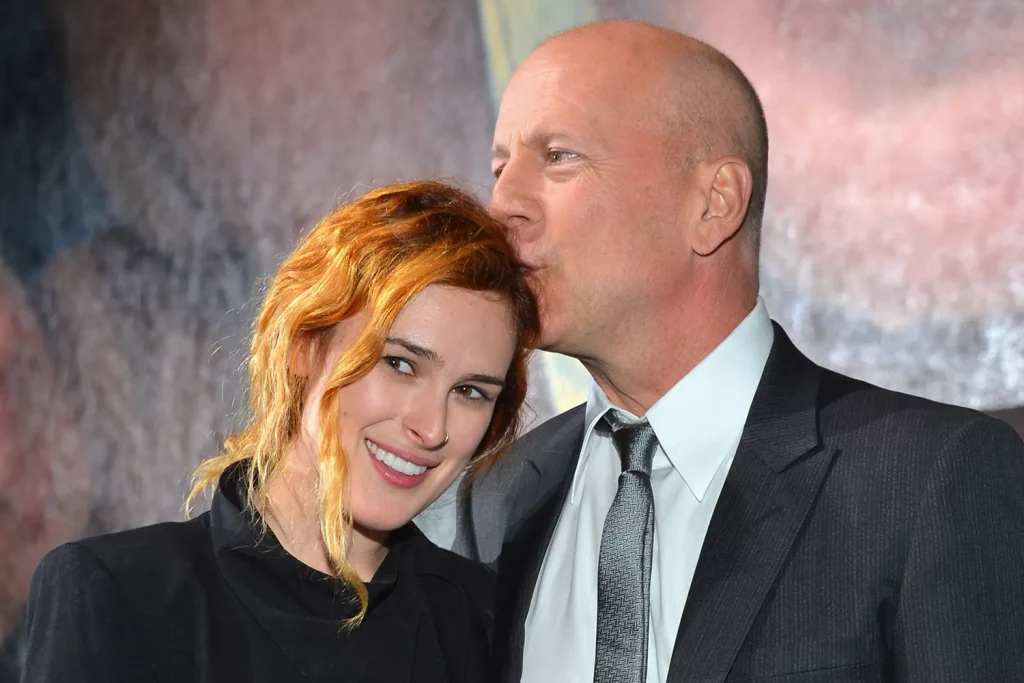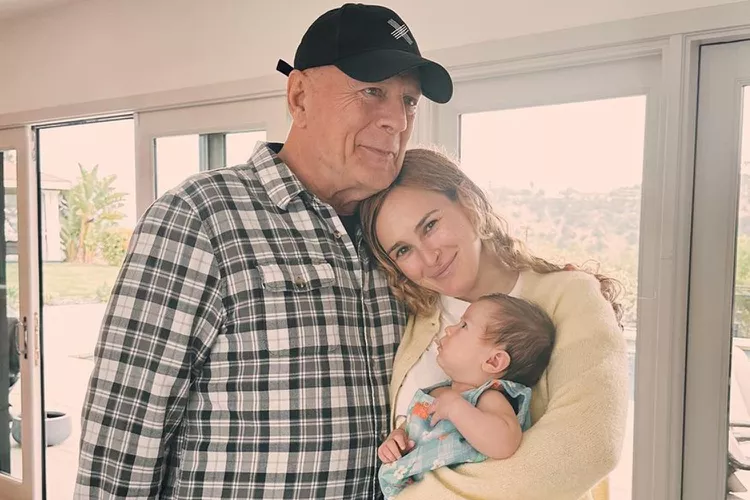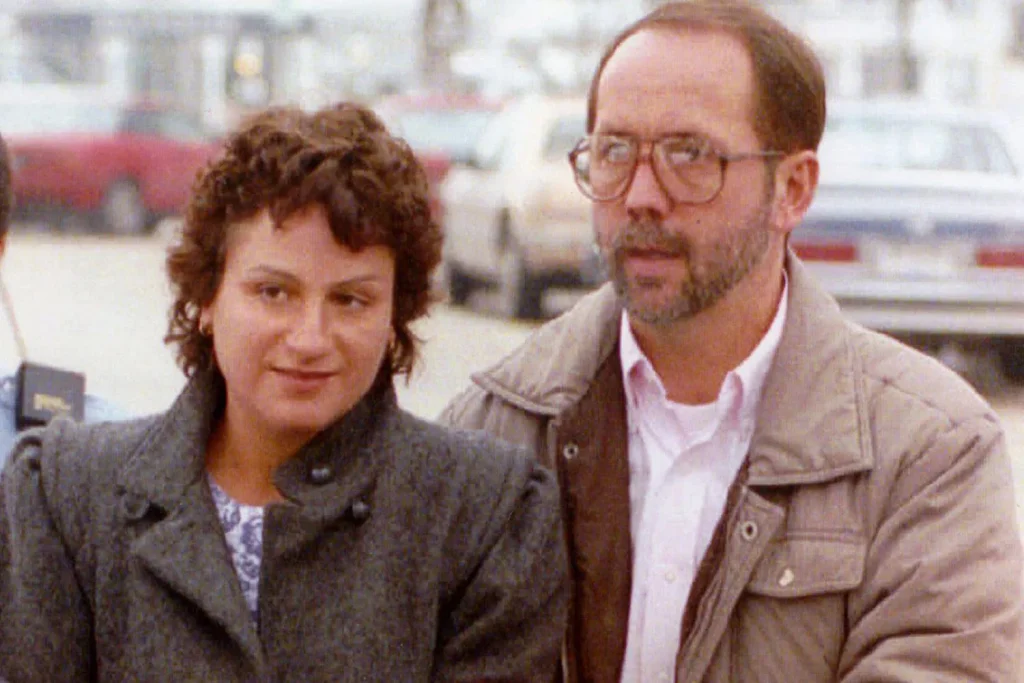Rumer Willis Reveals Why It’s So Hard to Explain How Bruce Willis Is Really Doing Amid His Dementia Battle
When Rumer Willis speaks about her father, Bruce Willis, there is a tenderness in her voice that reflects both love and the difficult emotional terrain her family has been navigating for the past two years. The eldest daughter of Bruce Willis and Demi Moore has become one of the most quietly steady presences in the actor’s life since his 2022 diagnosis of frontotemporal dementia, a disease that has reshaped their family’s daily rhythms, communication, and expectations for the future. And while she often receives questions from fans and reporters about how he’s doing, she revealed recently that the answer is never as simple as the world might hope.

Rumer explained that describing her father’s condition is complicated because dementia is not a linear progression, nor is it a one-size-fits-all illness. One moment may be peaceful, the next confusing, and the next full of warmth and connection. What remains constant, however, is the family’s commitment to surrounding Bruce with as much love, calm, and familiarity as possible. For the Willis-Moore clan — a blended group that has famously remained close through breakups, remarriages, and new additions — the journey has required softness, patience, and the kind of unspoken communication that families develop only through shared heartache.
Bruce Willis, known for his iconic roles in Die Hard, Moonlighting, The Sixth Sense, and dozens of action films that cemented him as one of Hollywood’s most durable stars, stepped away from acting after first being diagnosed with aphasia. When doctors later clarified that the underlying cause was frontotemporal dementia, the family publicly acknowledged that they were entering a new chapter — one defined not by movie sets and box office weekends, but by caregiving, presence, and acceptance.

Rumer says that answering the question “How is he doing?” feels impossible because no single phrase captures the reality of living with neurodegenerative illness. Some days are calm and filled with small joys — like moments when Bruce lights up at the sound of a familiar voice, or when he cradles his grandchild with a gentle instinct that seems untouched by time. Other days carry the complexities that dementia brings: difficulty with communication, memory, and processing. These contrasts are why Rumer often pauses before responding when people ask her about her father’s health. “It’s complicated,” she explained, emphasizing that the family tries to hold onto the brighter moments while learning to navigate the harder ones together.
Rumer, who welcomed her daughter Louetta in 2023, has shared in past interviews how meaningful it has been to see her father in the role of grandfather. The photo she posted — Bruce holding her gently as she wraps an arm around him, baby in hand — carries layers of emotion: pride, loss, gratitude, and the unmistakable love that exists between them. For Rumer, introducing her daughter to her father has been both a gift and a reminder of the urgency of time. She sees flashes of the man the world remembers — witty, warm, effortlessly charismatic — and holds onto them, even as she accepts the changes dementia brings.
Family members have spoken openly about the importance of maintaining joy in their household. Demi Moore, Bruce’s ex-wife and longtime friend, has remained closely involved, reinforcing that theirs is a family united not by circumstance but by intention. His wife, Emma Heming Willis, has become a public advocate for dementia awareness and caregiver support, often sharing her experiences to help others feel less alone. The family’s decision to speak openly about Bruce’s diagnosis was not made lightly; they hoped to bring visibility to a disease often misunderstood and deeply isolating.

Frontotemporal dementia affects the parts of the brain responsible for behavior, language, and decision-making. Unlike Alzheimer’s, which primarily affects memory, FTD can alter personality, communication, and emotional regulation. It tends to affect people at a younger age, which can be especially devastating for families who expect many more decades of life to unfold without such disruption. For someone like Bruce Willis — whose identity for decades was rooted in sharp dialogue, charisma, physical presence, and timing — the impact is profound.
Yet Rumer has said that even as certain abilities fade, her father’s essence still shines through in moments. She describes him as “still there,” even if differently than before. The family often reminisces, laughing over old memories or rewatching his films, not to dwell in the past but to honor the rich life he has lived. They have discovered that connection can exist even when words fall away. A look, a squeeze of the hand, a shared quiet moment — these have become the language they now use.
What Rumer emphasizes most is that her father is surrounded by unwavering support. The family has built routines that prioritize comfort, reassurance, and consistency. They avoid overstimulating environments and focus on creating a calm home where Bruce can feel safe. For many families facing dementia, the emotional toll is heavy — grief for the present intertwined with grief for what’s slowly being lost. But Rumer says love creates its own stability, even against the uncertainty of the disease.
Her honesty is echoed by her siblings — Scout, Tallulah, Mabel, and Evelyn — all of whom take part in Bruce’s care in different ways. They share moments online not to sensationalize his illness, but to remind people that dementia affects families across all backgrounds. The Willis family’s openness has helped demystify what caregiving looks like day-to-day, offering comfort to others facing similar challenges.

Rumer’s recent reflections also highlight the emotional pressure many children of aging parents feel. People often look for a clear update, a measurable milestone, or a hopeful turnaround. But dementia rarely offers such clarity. Instead, it moves in unpredictable ways, leaving loved ones to find balance between acceptance and resilience. Rumer says she has learned to avoid over-explaining, because language can flatten a reality that is far more layered. Her focus, instead, is on being present — not measuring progress, but cherishing connection.
As Bruce’s condition evolves, the family’s goal is not to fight the disease, but to ensure his life remains filled with love, safety, and dignity. They celebrate the good days. They adjust on the harder ones. They protect his privacy while still using their platform to raise awareness. And through it all, they remain anchored by their shared bond — a bond that began decades before dementia entered their vocabulary.
The world still asks how Bruce Willis is doing, because for many he is not just a Hollywood star, but a symbol of strength and cinematic nostalgia. For fans who grew up watching him save hostages in Die Hard or trading lightning-fast banter in Moonlighting, the news of his diagnosis was deeply personal. People want reassurance, an update that brings hope. But as Rumer gently explains, the truth is complex. There are days filled with light, others clouded with the reality of the disease, and many that fall somewhere in between.
What Rumer makes clear is this: her father is loved fiercely. He is cared for tenderly. And while dementia has changed the rhythm of his life, it has not erased the connection his family shares with him. In their home, joy and grief coexist, but love — steady, patient, unconditional — remains the center of everything.
Bruce Willis may no longer stand on movie sets or deliver the quick-witted lines he was known for, but the man behind the characters — the father, husband, friend — is still held close by the people who know him best. For Rumer, the answer to “How is he doing?” is not about medical updates. It is about presence, about heart, about being there for him as he was there for her throughout her life. And it is about cherishing every moment, even the quiet ones, with a man who spent decades in the spotlight and now finds peace in the stillness of home.


